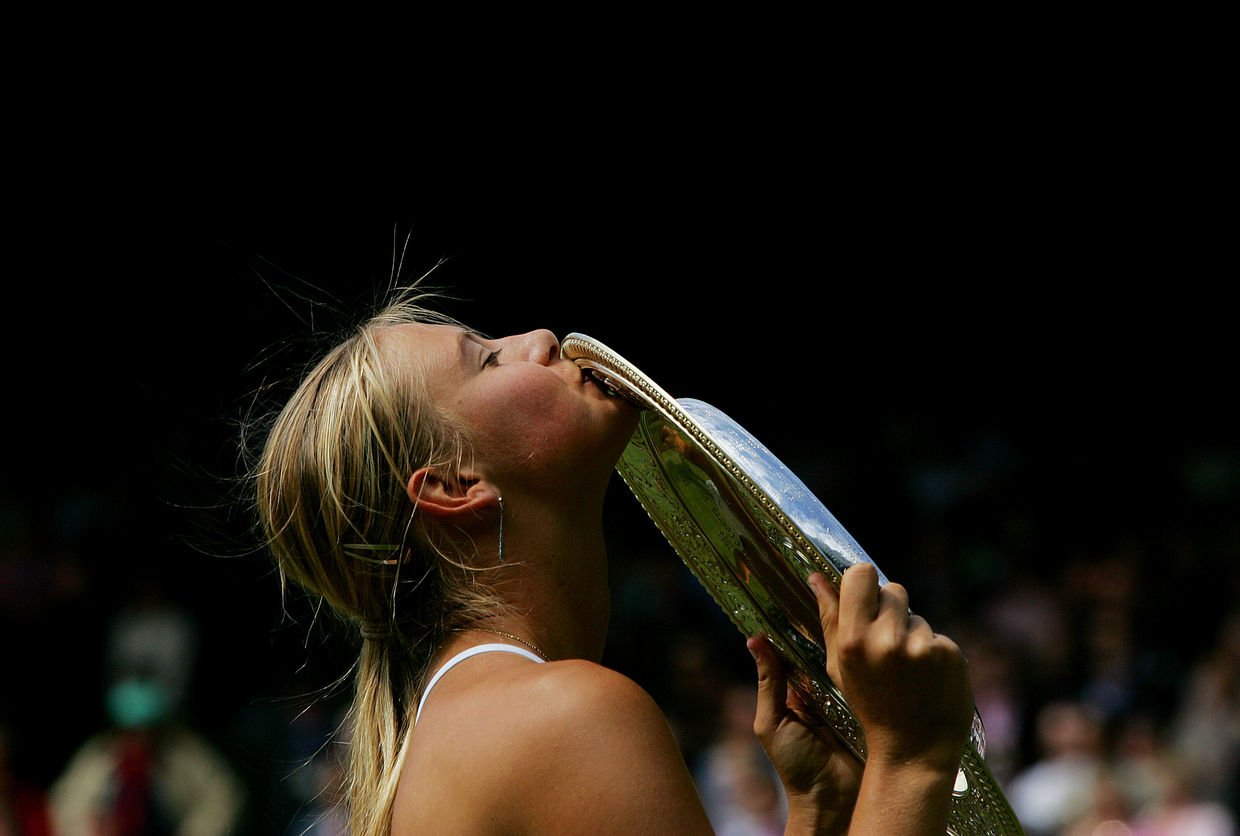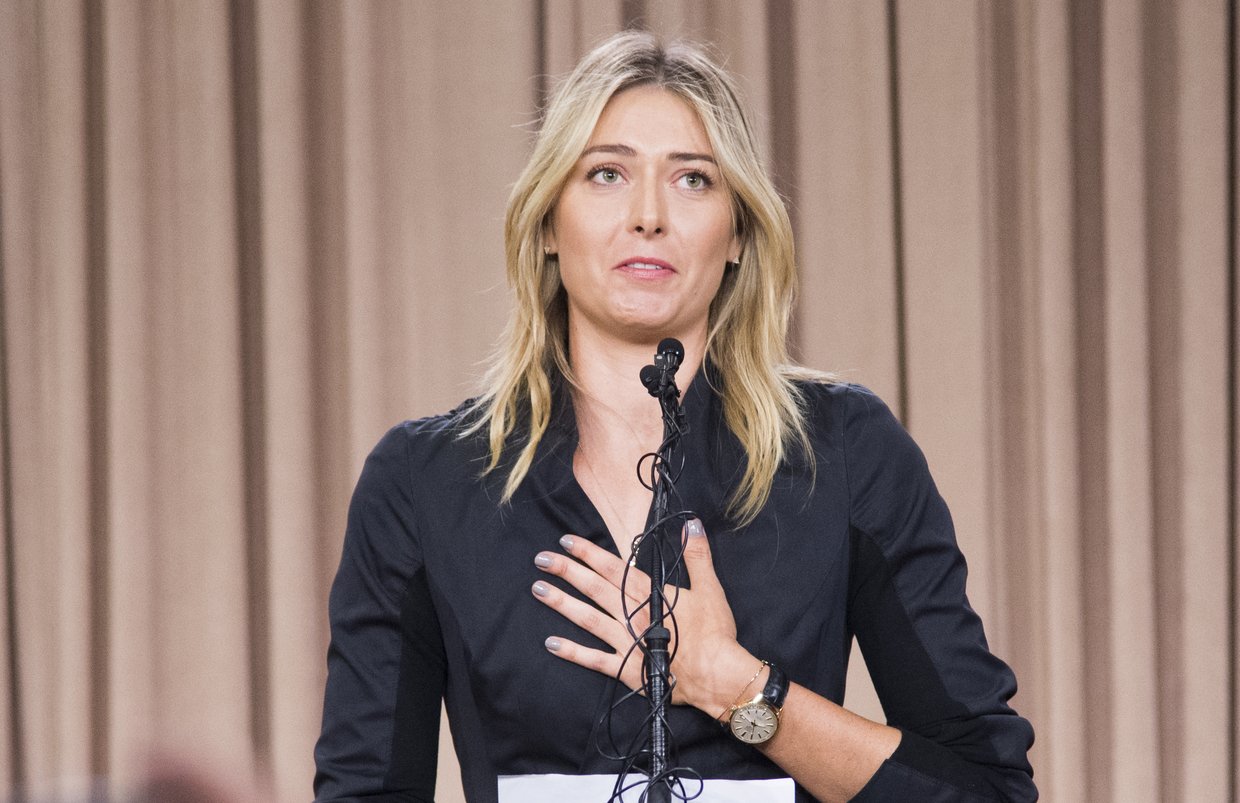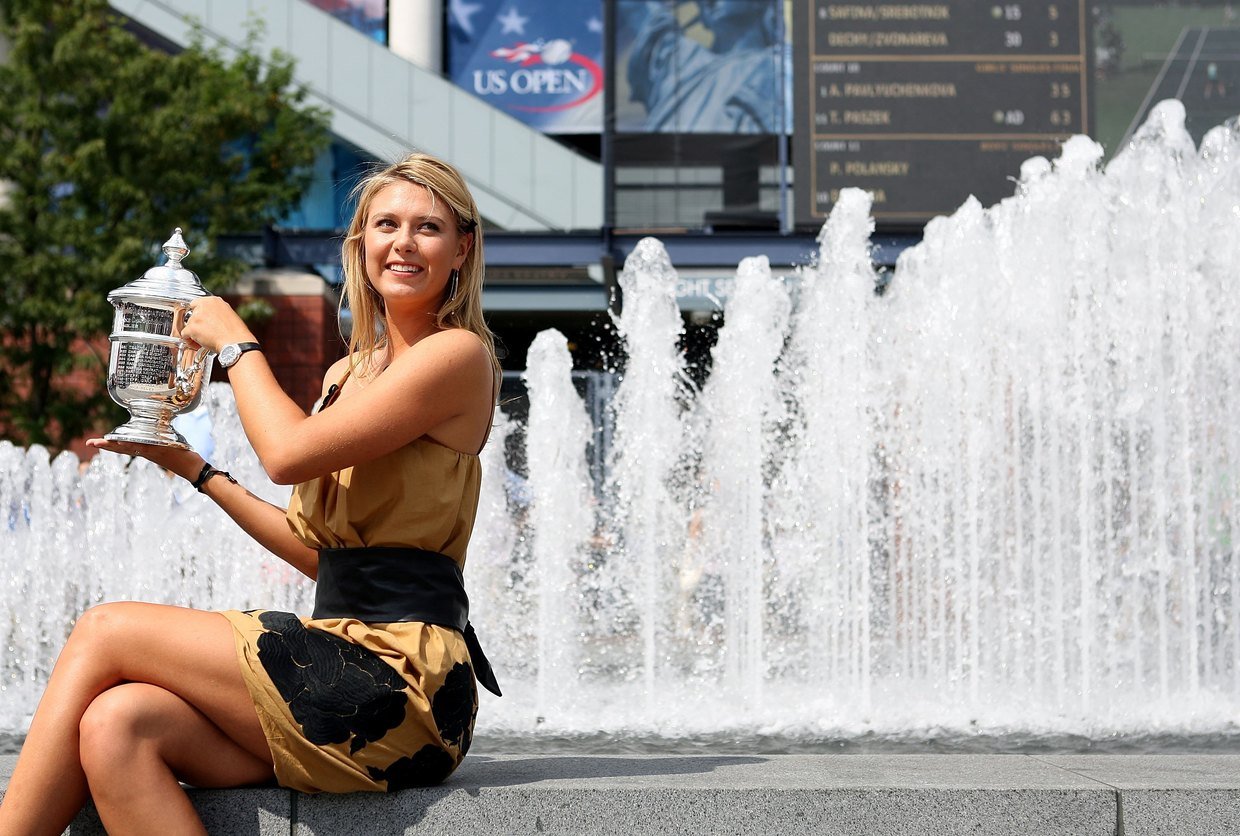Sharapova retires with head held high despite unscrupulous attempts to undermine her reputation

Maria Sharapova has hung up her racket on a 5-time Grand Slam-winning career that saw her dazzle as a teenage phenomenon, but then shot down by smear and scrutiny, as her name became mired in the murky meldonium scandal.
It was a far cry from when she was just a child when her father borrowed cash to fly them both from Russia to the US to coach the spindly seven-year-old from the Ural region into tennis’ next superstar.
A decade later, and the gamble paid off when Sharapova etched her name onto the All England club winners board by beating all-time great Serena Williams in the 2004 Wimbledon final.
Aged 17, she was not yet old enough to toast her victory as the third-youngest women’s singles winner at SW19.
From there, Sharapova’s stock soared as a court darling. The nubile, endearing star was a marketing dream and her backstory soon became as famous as her backhand, and the buzz around her rivaled in noise only by her on-court grunting.
Sharapova would go on to sit atop the WTA rankings as world number one in August 2005, aged 18. A year later she added the US Open, and in 2008 won a Grand Slam title Down Under.
It wouldn’t be until 2012 that Sharapova completed her ‘career slam’ of clinching all of the tennis majors when she won the French Open, and again winning at Roland-Garros two year later.

She had by this time become the most decorated Russian to ever lace up a pair of tennis shoes and her image as the girl-next-door done good through the American Dream transcended sport into fashion and pop culture.
But in the world of social media stars are built up to be torn down, and Sharapova’s pristine image came brutally crashing back down to earth faster and more furiously than a forehand volley in early 2016, when she tested positive for meldonium.
Sharapova remained truthful. "I did fail the test, and I take full responsibility for it,” she said in a statement, admitting taking the drug for 10 years when it was legal, and claiming ignorance of the recent rule change.
The Russian was the most high-profile of 127 athletes to test positive for the newly-outlawed drug, in her case while contesting the Australian Open. However, the World Anti-Doping Agency’s flimsy research into how long meldonium stays in the bloodstream led to some expected grey areas.

The agency admitted there was “a lack of clear scientific information” and concluded that tests conducted before March 1 that contained less than one microgram of meldonium could be permissible, leading to calls for an amnesty for those who had taken meldonium in good faith and when it was legal.
But a sadly typical rule of thumb for WADA is that conscientiousness is hardly ever allowed to get in the way of a potentially career-ending scandal. Despite Sharapova’s argument that her consumption was for genuine medical reasons, a tribunal ruled she had intended to enhance her athletic performance and she was banished from tennis for two years.
Sponsors dropped her like a hot potato and the floodgates of faux fury from the sports world opened, as the burning glare of the shocked and appalled was offset only by blind eyes turned to mounting suspicions against fellow athletes. Sharapova was perhaps never fully able to recover from the crippling press pile-on that commenced after her admission.
Also on rt.com Tennis star Sharapova banned for 2 years over doping - ITFMeanwhile, deified track star Mo Farah appears to be winning his most impressive race, that of being able to outrun pressing questions of his ties to disgraced coach Alberto Salazar and hot-foot his way away from evidence he changed his story relating to him receiving injections before his participation in the London Marathon.
The circumstantial evidence of Farah’s links to shady movements surrounding doping tests is of considerable size, and throws into doubt his legitimacy as sport’s Mr. Squeaky-clean.
Sir Mo missed two tests before the London 2012 Olympics, claiming on one occasion not to have heard the doorbell, and stopped short of the three-strikes-and-you’re-out World Anti-Doping rules limit, but nevertheless went on to win double gold in his home Games.
It has recently been reported that Farah issued denials to US anti-doping investigators back in 2015 over his use of a controversial supplement, L-carnitine, only to then reverse his story. He was free to run the 2016 Rio Games to repeat his double-gold feat.
Farah’s coach Salazar, who headed the Nike Oregon Project where the Briton was based from 2011 until 2017, was banned for four years in 2019 over doping violations, including a banned method to administer an infusion of L-carnitine, and tampering with doping controls.
Yet Sharapova's transparent approach to admitting her use of a newly-banned substance was deemed sufficient for a biennial ban.
In the tennis world, Sharapova’s great ‘rival’ Serena Williams was revealed to have received several questionable Therapeutic Use Exemptions (TUEs) from the International Tennis Federation. Then in 2018, Williams was visited by a USADA tester outside her specified 'whereabouts' window in Florida and found her to be not at home.
Williams cried foul and claimed she had been tested a disproportionate amount of times, perhaps using the same logic that she had implied when calling out a ‘sexist umpire’ for disproportionately penalizing her during her famous US Open meltdown later that year.

Nevertheless, she remains one of the world’s top players and chases that elusive record-equaling 24th Grand Slam. Sharapova on the other hand retired on Wednesday ranked a lowly 373 in the world and had not won a major trophy since 2014.
Sports seems to become more and more mired in the murky world of doping and shifty dealings behind the scenes to keep up with the ever-changing landscape of illicit substances.
In contrast, Sharapova remained truthful about any infractions, but what should have been the prime of her career was tainted by suspicion and spurious doubts over her integrity.
Sharapova’s 15-year career was spent on both the wrong and the right side of the tennis tracks, but the Russian addressed her mistakes with courage and truthfulness.
In the climate of sports today, it begs the question whether it really pays to be honest.
Also on rt.com Teen triumphs, tussles with Serena, and colossal earnings: Maria Sharapova’s remarkable career in pictures













